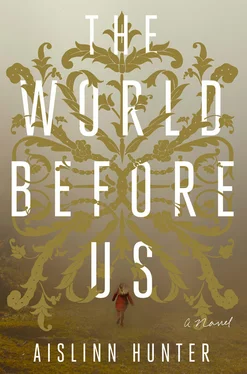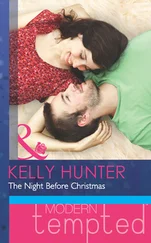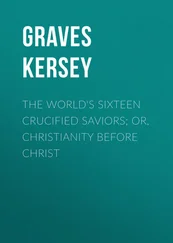Outside, the evening air is surprisingly cool. Jane stands on the pavement, lifts her chin and watches as the clouds pull their veils over the city. Rain , she thinks, and squints skyward. Unsure of what she’ll do, a few of us start to worry, and we argue about fluttering her again. Then the one singing Dvořák picks up the melody, his voice swaying loudly as if he’s remembering the best piece of music on earth.
“Shut it!” the theologian shouts.
“Leave him be,” says the idiot.
“I can’t think with the distraction,” the theologian seethes.
“Folly,” says the poet, “on the hill behind the seat.”
The theologian exhales, and Cat says chirpily, “Right. I’m going to go back in and poke my fingers into the sweets.”
The girl amongst us whispers, “Wait,” with little-girl urgency. She turns to Jane and tries to wish her back inside, but Jane stays where she is, and what we know of the girl — her brightness, the soft plane of her presence — turns to us for help. When we don’t do anything, she takes Jane’s hand, flutters her own fingers over the open curve of Jane’s palm, tracing and retracing the same path with such focus we can almost see her bent into her work.
“What are you writing?” we ask.
Jane lifts her hands and rubs them together.
“Is it a letter?”
“No.” The girl sighs, and when Jane drops her hands back to her sides the girl returns to what she was doing.
“Is it a word?”
“No.”
“What is it?”
Two months after she stopped playing the cello Jane told her therapist that she was thinking of a career in museums. And to Clive’s credit, even with everything he knew about William’s job, he didn’t say a word, just cocked an eyebrow and scribbled something into her folder. Then he closed it and set it down on the table.
Less than a year later, when Jane was reading the casebook of an asylum patient for a class assignment, the image of Clive’s blue folder, with its two-dozen sheaves of paper, dropped so casually onto his side table, came back to haunt her. What if those documents — the details of what had happened to her and how she’d struggled after Lily disappeared — might one day be all that was left, the one bit of evidence that defined who she was? Jane’s mother, if she spoke about Lily at all, always referred to “that thing that happened”—as if Lily’s disappearance were an altercation Jane had had in the schoolyard or some childhood accident and not the defining before and after of her life. This was partly why Jane took to studying asylum archives for her dissertation, why she later took to N — she was drawn to the idea of what falls off the side of the page, what goes missing.
Jane was thirty years old when she finally stopped seeing Clive. She’d been skipping sessions now and then and not saying much when she did go. She’d started sleeping around a bit before she and Ben got serious, and with no other fodder — no recently dead mothers or on-again, off-again father complaints — Clive had begun to make an issue of the promiscuity.
“Absolutely,” he said when she told him she was done. “Terms of service — the client decides when they’ve had enough.”
She remembers how he shrugged, and that the shrug stung. Then he picked up the stress ball on his side table, sinking into his chair in that slouchy fat-gut way she hated. He was still tossing the ball back and forth from one hand to the other when she lifted her scarf and coat off the rack in the corner.
“So, we’re done then?” he asked as if expecting a summary statement or some expression of thanks.
“It’s not a divorce, Clive, and neither of us is dying.”
“Right then, best of luck.” He stood up and shook her hand in that hearty well-done-us way that reminded her of politicians on the telly after a particularly depressing summit. Then he sat down and watched her open the door. “Small everyday acts of bravery, Jane”—she could hear the ball softly hitting his palm behind her—“small everyday acts.”
When Jane opens the door and steps back inside the Chester, we breathe a sigh of relief even though we’re unsure what turn of thought has led her back in. While we were outside someone adjusted the lighting, and now the hall is glowing in lamplight, the marble floors gleaming, the bowhead fixed above us like a celestial being. The hummingbirds, the tortoise, the sixteen cabinets are all where we left them — our eyes settle on each display as if we are passengers on a train compulsively counting our bags to confirm that all our belongings are here. The girl is still beside Jane.
“What did you draw?” we ask her.
She shakes her head as if it’s a secret.
“A picture?”
“No.”
“An arrow?”
“No.”
“What then?”
“Invisible cities,” says the girl.
It’s almost seven o’clock when Jane gathers enough nerve to leave her office and enter the natural history hall. There are already a hundred people milling about, and the crowd is so noisy that the sprightly notes of the quartet’s Vivaldi are almost lost under the chatter. Jane’s mother liked to call rooms like this, filled with wealthy arts patrons, “philanthropic rooms”—said disdainfully, because to Claire forging a career as an academic or a musician was something one did , whereas having money was something that happened to you. Claire came from old money, but after she met Henri she sidled out of it, acted as if every success, every honour she earned, was achieved despite some vaguely difficult upbringing. At parties or conferences when people asked if she was Andrew Standen’s daughter, she would say, “the cabinet minister?”—then light up a cigarette and laugh bitterly as if the suggestion were ridiculous. It was the same for Jane except that Jane couldn’t escape her lineage: at university she was Claire Standen’s daughter, at social and charitable events she was Andrew Standen’s grandchild and for the eighteen years she studied cello she was Henri Braud’s offspring — even though her father had toured through most of her childhood and then left for good when Jane was sixteen.
Jane’s mother had visited the Chester only once — three years after Jane started working there as the full-time archivist, and four or five months before Claire died. From where she’s standing by the glass wall of the gift shop, Jane can almost track Claire’s movements in the natural history hall that day. By then Claire had lost over a stone and had cropped her hair into a pixie cut so that its loss wouldn’t be so noticeable. “Look, I’m Twiggy,” she’d said, twirling around by the Nelson cabinet. Claire had loved unexpected parts of the collection: common seashells, flints, a Royal Worcester vase in over-bright colours, the Canopic jars secreted back from Egypt. She’d stopped at the mounted aardvark and touched his bristly snout, looking straight into his glass-bead eyes. The prognosis by then wasn’t good — a few months, the doctors said, a year at the outside — and Claire had retreated, as she always did, into her intellect, filtering everything through irony and her sense of the absurd.
Duncan, scrubbed clean of cardboard dust and wearing a tuxedo, sidles up to Jane. She’s already on her second glass of Chardonnay.
“Break anything this afternoon, Janey?”
Jane rolls her eyes at him even though she wants, irrationally, to unbutton his black jacket and bury her face against his chest, hide in the space between his lapels. It occurs to her, as she leans into him and he casually drapes his arm over her shoulder, that it was ridiculous not to take Lewis up on his offer to be here with her. A month ago when they’d met up at The Lamb and Lewis suggested he’d come to the lecture, she had said, “No, no, I’ll be all right, I can handle it.” No one at the Chester knows about Lily, and that’s probably why she told Lewis she’d be fine — she didn’t want anyone watching her, watching her and William.
Читать дальше












